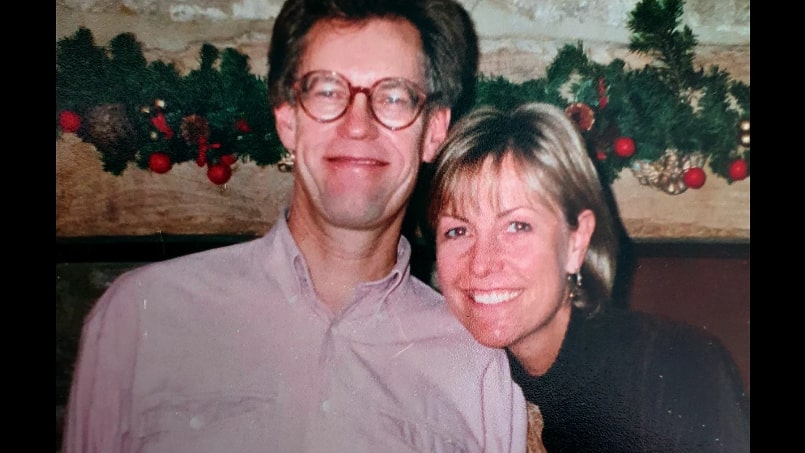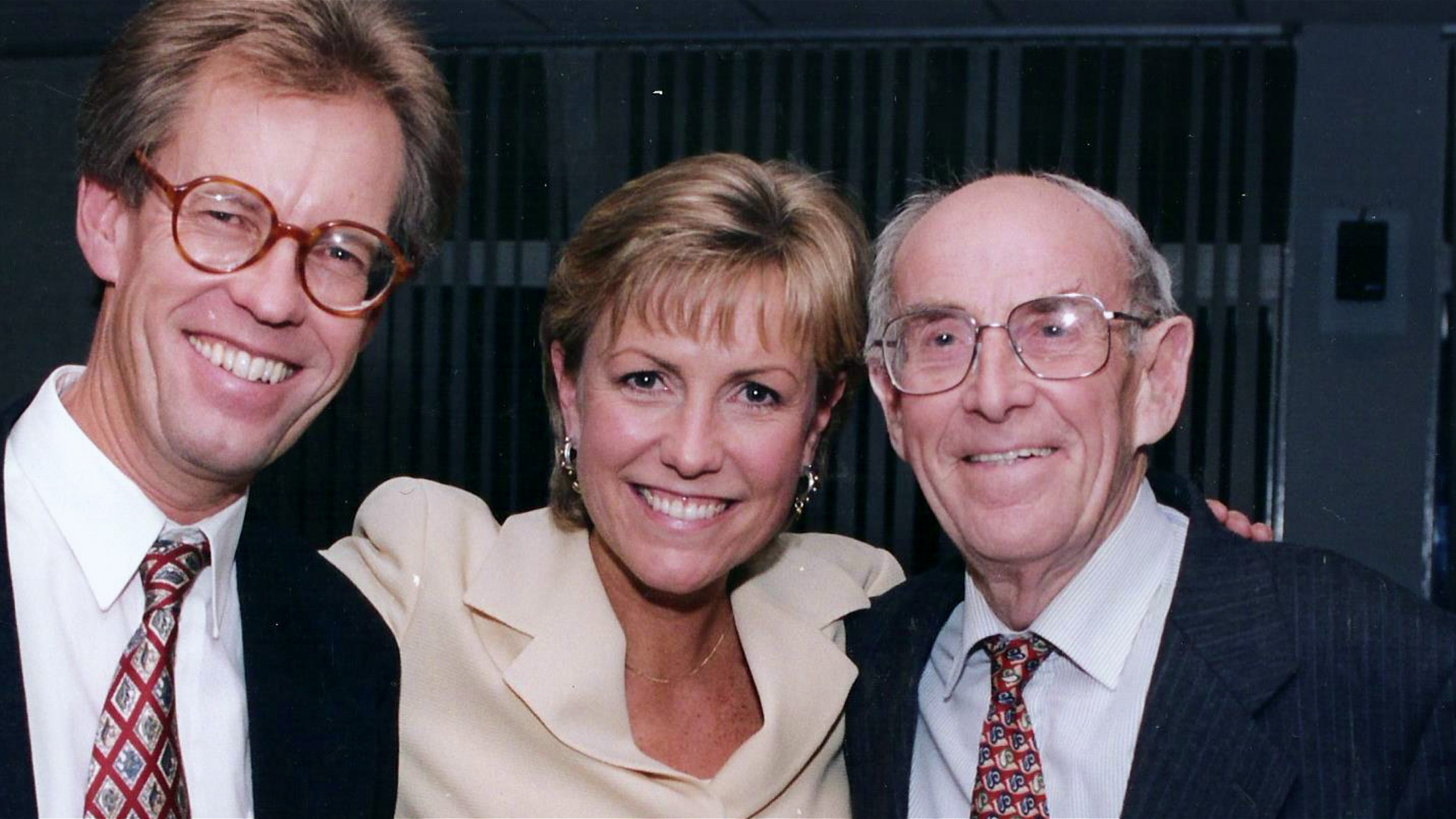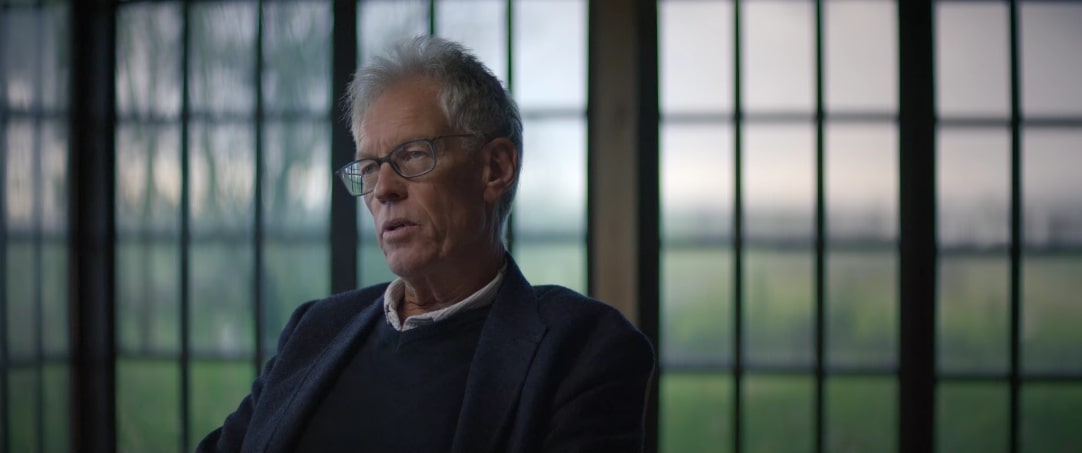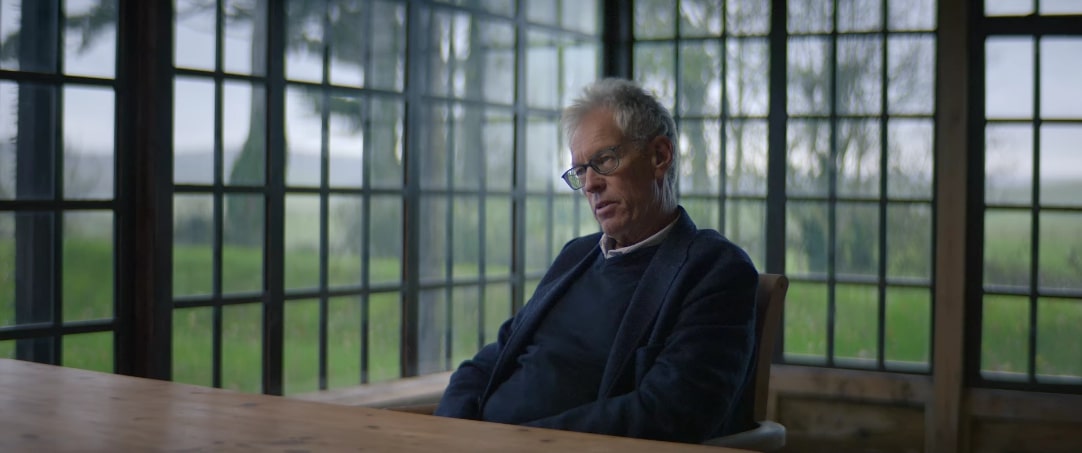As a three-part original documentary series living up to its title in every way conceivable, Netflix’s ‘Who Killed Jill Dando?’ can only be described as equal parts baffling, intriguing, and haunting. That’s because it carefully underscores not just the horrific April 26, 1999, offense but also its ensuing investigations in the hopes of finally obtaining/uncovering some much-needed answers. Amongst those to help navigate the same was actually this television presenter’s brother, Nigel Dando.
Who is Nigel Dando?
Although born in regional Weston-super-Mare, Somerset, to devout Baptists Winifred Mary Jean Hockey and Jack Dando, Nigel as well as his nine-years younger sister Jill grew up quite happy. The truth is they didn’t have much money or resources, yet they always managed to spend quality time together by having a picnic at the beach most Sundays rather than going on big vacations. “Do you remember those sand-blown lettuce sandwiches?,” the former said with a small chuckle in this Marcus Plowright-directed production. “They were a part of the staple diet of summers.”

As for Nigel’s opinion on Jill’s profession, he asserted, “It was almost preordained that she was going to become a journalist. Well, she was interested in words and she was more outgoing than I was. I’d whisper in her ear occasionally, saying, ‘Why are you still in Weston? Why don’t you look for jobs around the place?’ Therefore, of course, when she landed a position at BBC Spotlight in Plymouth in 1987 before evolving into an on-camera correspondent, this local newspaper reporter himself (since the 1970s) was incredibly proud of her. He continued, “She was so polished and professional, but at the same time retaining a natural warmth about her. Sort of a twinkle in her eye.”
It was hence no surprise to Nigel that Jill’s performance soon caught the attention of BBC ‘Breakfast’ producers in London, yet he could’ve never imagined this move would inadvertently lead to her death in 1999. He was actually sitting at his Chief Reporter desk at the Bristol Evening Post on the fateful April 26 morning when he got the news of his sister’s demise, following which he immediately went into automatic mode. “I thought I need to protect my dad from this,” he candidly revealed in the docuseries — their mother had sadly already passed away from leukemia at 57 in 1986. “…He was obviously devastated.”

Nigel added, “I was wondering how we were going to cope with all this. About half an hour after I had gone down to Weston, a TV reporter from BBC Points West knocked on the door. I knew him. I sort of slipped back into journalistic mode.” That’s when he not only disclosed he’d last seen Jill on Easter Sunday but also realized they were going to be in the eye of a storm considering his sister’s celebrity status across the nation. Though he did manage to take advantage of this by giving several interviews to ensure her case remained in the spotlight, but everything fizzled down with time owing to there being no concrete leads.
Nigel Dando is a Retired Journalist Now
A local Londoner by the name of Barry Geroge was eventually arrested, tried, convicted, and later acquitted of Jill’s horrific homicide, yet Nigel reportedly doesn’t deem him responsible in any way, shape, or form. “When you strip it right back and you look at the roads that the police went down to follow up these theories, at the end of the day, none of them really held water,” this 2017 retiree recently expressed. “There was no evidence. My theory, which I still stick to, I don’t know how true it is, people may say it’s quite fanciful, but that Jill was just in the wrong place at the wrong time.” He doesn’t think she was targeted in any manner.

Nigel has even stated, “My belief is that it was someone who was in that street who was armed, saw Jill, recognized her, and for whatever reason wanted five minutes of notoriety and killed her… I just think [an organized hit] is highly unlikely. To organize something like that, probably Jill would have had to have been followed, or someone would have had to have been in her street 24/7. But Jill didn’t actually live at her home in Gowan Avenue at the time. She was toing and froing between the house where she lived in Chiswick with her fiance, Alan. Nobody could have known when she was going to be at her house.”
It’s been nearly 25 years since Nigel lost his sister, but he hasn’t lost hope — he knows it’s a long shot, yet he’s determined to continue shining a light on her case in the hopes someone comes forward with something new. “The reason I do these things [like the documentary] is to publicize the fact that Jill’s killer is still at large, and the publicity about the circumstances surrounding her death can’t be a bad thing,” the 71-year-old elucidated. “You just hope that [it] might just jog somebody’s memory of what happened on or around the day that she was killed.
The retired journalist continued, “They may just have that vital bit of evidence that would enable the police to pursue it, reopen the case and, perhaps, make an arrest. Or, indeed, all this publicity might just prick the conscience of the person who actually killed her, and they may just come forward and go to the police station and [admit] that they were the person that police were looking for all along… If [the killer is] alive, and if they do watch the documentary, if they had a shred of conscience, then maybe it’s about time they turn themselves in. Perhaps then they can live with themselves and live with what they’ve done, and also tell us why. Why they took Jill away from us.”


You must be logged in to post a comment.